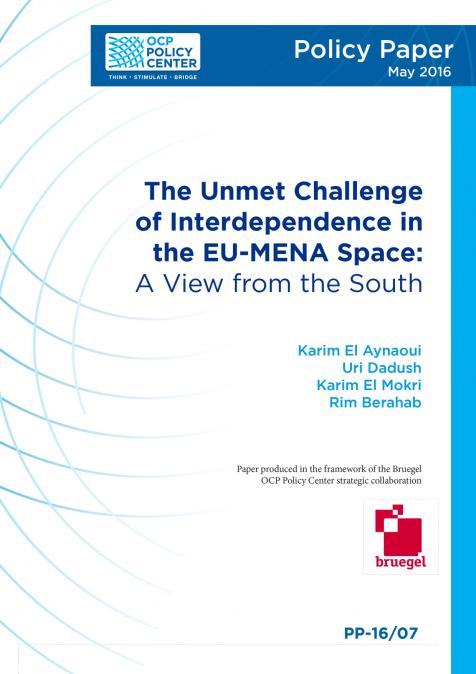Publications /
Policy Paper
- The trade agreements that the European Union has with North African countries – with Algeria, Egypt, Morocco and Tunisia – are often seen as having delivered disappointing results since they came into force during the 2000s. The four North African countries have seen insufficient growth in their exports to the EU, and have undergone only limited diversification. In the meantime, the EU’s exports to North Africa have grown quite rapidly.
- Economic growth in North Africa has been well short of what is needed to reduce chronic under-employment, especially of young people. The EU trade agreements with North Africa could generate additional, large benefits if they either directly led to or at least incentivised behind-the-border reforms to make the North African countries more competitive in international markets. Though this reform is the responsibility of the governments of North African countries, the EU could provide stronger incentives to improve the business environment. Meanwhile, in agriculture, were the North African countries able to compete with the EU on an even playing field, agriculture’s share of domestic value-added would almost certainly be significantly larger and rural poverty correspondingly lower than at present.
- Nevertheless, the agreements have been judged too harshly. They helped generate large amounts of trade, though not enough was done on the domestic front to derive the maximum benefit from them. Moreover, the domestic and international environment has been unfavourable, impeding North Africa’s progress. Over much of the relevant period, the EU grew sluggishly, and North African countries faced sharply increasing competition on European markets from China and the eastern Europe countries that joined the EU in 2004 and after. Generally, countries that acceded to the EU have done much better than the countries of North Africa. While the countries of North Africa are not EU candidates, there is much that they and the EU can learn from the example of the former accession countries in terms of how a new generation of trade agreements between the EU and North Africa could be deeper and more comprehensive than currently, and could be accompanied by increased aid for trade.






